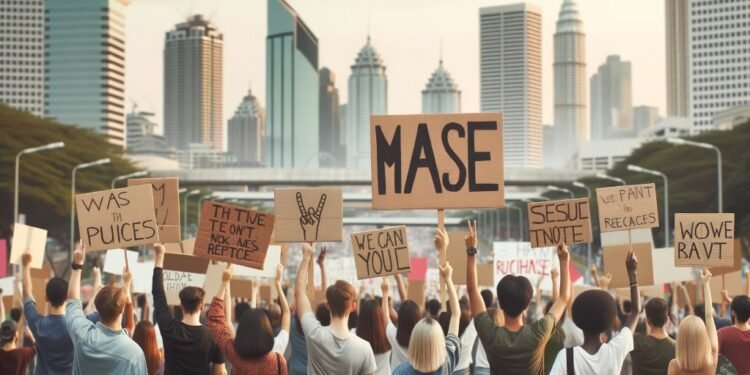Introduction
Dissent, while often misconstrued as a form of rebellion or disagreement for its own sake, is the pillar of social transformation and advancement. Whether expressed as peaceful protests, provocative writings, or even revolutions, the voice of dissent challenges dominant narratives and paves the way for a more equitable society. As the catalyst for many societal shifts, contention merits deep exploration and understanding.
Historical Role of Dissent
Historically, the act of dissent has been the touchstone of significant social change. Dissenters often find themselves at odds with the majority or those in power. For instance, Martin Luther’s Ninety-Five Theses in 1517, which criticized the Catholic Church’s practices, ignited the Protestant Reformation. Further back in time, Socrates’ relentless questioning of Athenian norms, although leading to his death, set the foundation for Western philosophy.
In India, Mahatma Gandhi’s philosophy of nonviolent resistance or Satyagraha was a form of dissent against British colonial rule, eventually leading to India’s independence. Similarly, Nelson Mandela’s resistance against apartheid in South Africa marked a significant chapter in the chronicles of dissent, ultimately redefining the nation.
The Philosophical Implications
Philosophically, dissent is grounded in the belief in individual autonomy and the right to free expression. John Locke and Jean-Jacques Rousseau, notable philosophers of the Enlightenment era, both emphasized the individual’s rights and independence. They believed that individuals should have the freedom to disagree with and challenge established norms and that this freedom is foundational to a just society.
Dissent in Modern Times
Advances in communication and technology have shaped modern forms of dissent. The Arab Spring, catalyzed by social media platforms, saw a series of protests and uprisings in the Middle East and North Africa, challenging autocratic regimes. The Black Lives Matter movement, birthed in the U.S., utilizes online platforms to mobilize and spread its message against racial injustice globally.
In Hong Kong, the pro-democracy protests signaled a collective dissent against perceived overreaches by mainland China. These movements underscore the universality of conflict as an instrument of change in the face of perceived injustices.
Challenges to Dissent
Despite its importance, dissenters often face grave risks. From state-sponsored repression to societal ostracization, the act of dissent can come with significant personal costs. Governments around the world have sometimes labeled dissenters as “terrorists” or “traitors,” using these labels as pretexts to suppress opposing views.
In many authoritarian regimes, dissent can result in imprisonment, torture, or even death. Yet, the persistence of dissenters in these environments highlights the indomitable human spirit and the innate desire for justice and freedom.
Conclusion
Dissent is not just a disagreement; it is a commitment to a better future. As society continues to evolve, the voices of dissent ensure that no narrative goes unchallenged and no injustice remains in the shadows. While the road to change may be arduous and fraught with challenges, the journey is made worthwhile by the promise of a more equitable and just society. Embracing and understanding dissent is not only crucial for societal advancement but also for the very fabric of democracy and freedom.
Also, Read MyFoxBoston: Redefining Digital Broadcasting.




